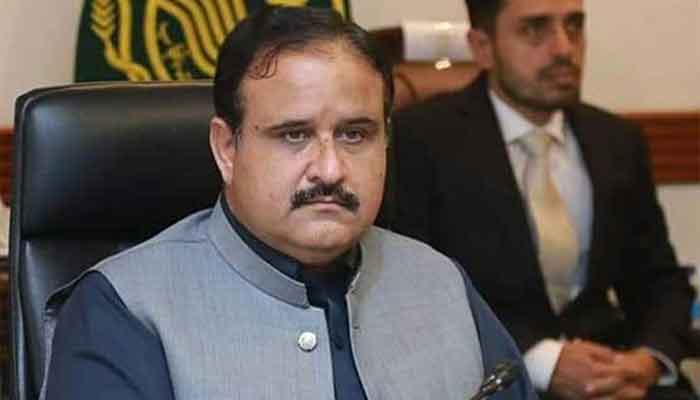Buzdar’s DG Khan Division tops in transfers
Ten commissioners transferred in a span of 40 months is unheard of in the Punjab’s administrative history
ISLAMABAD: As if transferring six commissioners in Lahore and Rawalpindi, and seven commissioners in Gujranwala was not a shining testimony of good governance in Punjab under the PTI government, Chief Minister Punjab Usman Buzdar has transferred 10 commissioners in his hometown of Dera Ghazi Khan in the last 40 months.
This amounts to an average tenure of four months for each commissioner, as opposed to the policy requirement of three to four years. Ten commissioners transferred in a span of 40 months is unheard of in the Punjab’s administrative history, but the Wasim Akram Plus of Prime Minister Imran Khan has made it possible in his own home division.
Following are the 10 commissioners transferred so far in quick succession in D G Khan: Rana Gulzar (Oct 2018). Tahir Khurshid (April, 2019), Asad Ullah Faiz (July, 2019), Mudasir Riaz Malik (November, 2019), Naseem Sadiq (April, 2020), Sajid Zafar Dahl (Oct, 2020), Dr Irshad Ahmad (August, 2021), Sarah Aslam (November, 2021) Zeeshan Lashari (December, 2021), and Liaquat Ali Chattha (December, 2021).
Reportedly, all these officers were personally interviewed by the CM before being posted as commissioners in DG Khan.
Sources in the bureaucracy explain that this division is considered the most important administrative unit of governance in Pakistan. The commissioner is representative of the government at the divisional level away from the provincial headquarters. He is supposed to supervise and monitor all provincial departments and write ACRs of all deputy commissioners and counter sign ACRs of all assistant commissioners and those of other provincial government departmental heads in the division. He also supervises key federal departments.
Punjab has nine administrative divisions, namely Rawalpindi, Gujranwala, Sargodha, Lahore, Sahiwal, Multan, Bahawalpur, Faisalabad and D G khan.
DG Khan division is extremely important from an administrative and security point of view. It comprises Muzaffargarh, Rajanpur, Layyah and DG Khan districts. It borders all three provinces of Sindh, Balochistan and KP. It also has a stretch of tribal areas in Rajanpur and DG Khan, which are the direct responsibility of the commissioner DG Khan, who controls the Baloch Military Police (BMP), the militia that controls the DG Khan Tribal area. The clout of this force can be gauged from the fact that Chief Minister Buzdar’s brother Umer Buzdar is Levies Havaldar in the BMP.
According to an official, “This division has many important security installations, it has critically important energy related infrastructure in the region and the Indus highway connecting the northern regions of the country with the port city of Karachi passes through DG Khan division. Security wise also the division is at the frontline due to its proximity to Balochistan, and the former tribal areas of KP. The local law and order situation is also very precarious with many criminal gangs operating in the riverine areas of the river Indus which flows through the whole division.”
“The last thing such a sensitive administrative region needs is administrative instability”, lamented a senior civil officer.
This region has a huge development deficit, and the people are one of the poorest in Punjab. The culture of the area is sardar dominated and extremely feudal, and in this culture, professional, neutral, and effective civil servants are the only hope for poor people, said the source.
“However, the feudal sardar-dominated PTI government has made the most senior civil service position in DG Khan division a rolling stone and a mockery,” he said, adding, “For most bureaucrats, it is incomprehensible that the provincial government has been unable to find one suitable officer in the last three and half years for the most important administrative assignment in the hometown of the chief minister.
-
 Hilary Duff Opens Up About Marriage Fears Despite Strong Bond With Matthew Koma
Hilary Duff Opens Up About Marriage Fears Despite Strong Bond With Matthew Koma -
 ‘Grey’s Anatomy’ Star Eric Dane Breathes His Last At 53
‘Grey’s Anatomy’ Star Eric Dane Breathes His Last At 53 -
 Donald Trump Breaks Silence On Andrew’s Arrest: ‘It’s A Shame’
Donald Trump Breaks Silence On Andrew’s Arrest: ‘It’s A Shame’ -
 DJ Khaled Shares Weight Loss Progress
DJ Khaled Shares Weight Loss Progress -
 Jennifer Aniston And Jim Curtis Share How They Handle Relationship Conflicts
Jennifer Aniston And Jim Curtis Share How They Handle Relationship Conflicts -
 Shamed Andrew Real Birthday Plans As Cops Showed Up At Door
Shamed Andrew Real Birthday Plans As Cops Showed Up At Door -
 Pete Davidson’s Girlfriend Elsie Hewitt Says 'everything Hurts' After Sudden Medical Emergency
Pete Davidson’s Girlfriend Elsie Hewitt Says 'everything Hurts' After Sudden Medical Emergency -
 Princess Beatrice 17 Holidays Per Year Exposed Amid Andrew Arrest
Princess Beatrice 17 Holidays Per Year Exposed Amid Andrew Arrest -
 Who Is 'Queen Of Woke'? UK First Female Civil Head
Who Is 'Queen Of Woke'? UK First Female Civil Head -
 Dwayne Johnson Confesses What Secretly Scares Him More Than Fame
Dwayne Johnson Confesses What Secretly Scares Him More Than Fame -
 Elizabeth Hurley's Son Damian Breaks Silence On Mom’s Romance With Billy Ray Cyrus
Elizabeth Hurley's Son Damian Breaks Silence On Mom’s Romance With Billy Ray Cyrus -
 Shamed Andrew Should Be Happy ‘he Is Only In For Sharing Information’
Shamed Andrew Should Be Happy ‘he Is Only In For Sharing Information’ -
 Daniel Radcliffe Wants Son To See Him As Just Dad, Not Harry Potter
Daniel Radcliffe Wants Son To See Him As Just Dad, Not Harry Potter -
 Apple Sued Over 'child Sexual Abuse' Material Stored Or Shared On ICloud
Apple Sued Over 'child Sexual Abuse' Material Stored Or Shared On ICloud -
 Nancy Guthrie Kidnapped With 'blessings' Of Drug Cartels
Nancy Guthrie Kidnapped With 'blessings' Of Drug Cartels -
 Hailey Bieber Reveals Justin Bieber's Hit Song Baby Jack Is Already Singing
Hailey Bieber Reveals Justin Bieber's Hit Song Baby Jack Is Already Singing




